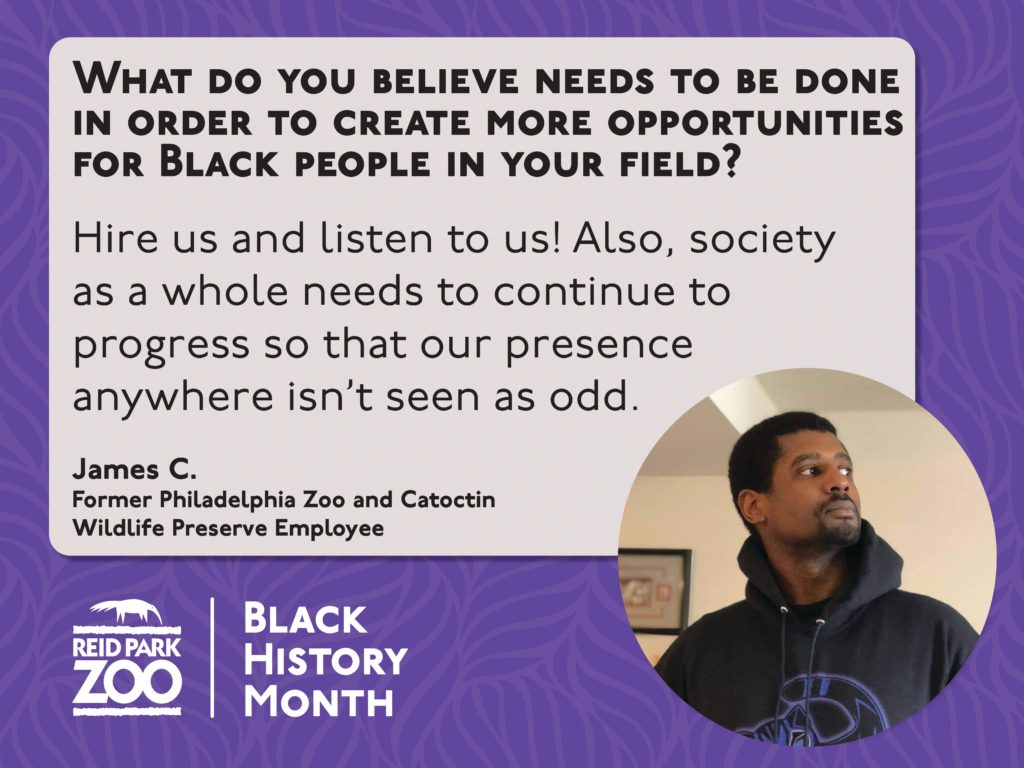Black in Nature: Featuring James Cartwright

This post is part of “Black in Nature: Tackling Diversity in Conservation,” a Black History Month series giving Black people who work in animal care and conservation a platform to share their experiences and spark the conversation necessary for change. Learn more here.
James Cartwright is proud of his work in the fields of conservation and animal care but says his experience hasn’t always been easy.
“To me, [being black in the animal care field] means showing others like me that yes, you can do this,” says James. “My experience has had many ups and downs. While it was positive for the most part, the negatives stand out.”
The negative experiences James had include being passed over for a position in which he was knowledgeable and qualified and repeatedly being looked past by zoo guests.
“One negative that I noticed constantly is that often if guests (in particular white guests) had questions about something, they would look right past me and ask my interns (99% of the time, the interns I was with were also white).”
James believes that there is not nearly enough diversity in his field, and that more POCs are needed. What can zoos do to remedy this? “Hire us and listen to us!” Of course, this applies to every field, not just conservation organizations. “Society as a whole needs to continue to progress so that our presence anywhere isn’t seen as odd.”
James is proud of the work he’s done while working in animal care, including being an advocate for animal welfare. In previous positions he’s developed training and enrichment programs for reptiles from scratch, and even advocated to reduce overcrowding. “I worked tirelessly to improve those conditions,” James said.
Looking at the future of conservation action, James is critical of the lack of proactive work being done to protect the environment before it is damaged.
“The biggest challenge is capitalism and indifferent elected officials unwilling to truly do what is needed to protect the environment,” says James. “Usually environmental destruction is fueled by some entity’s desire to make money no matter who or what it hurts. While much progress has been made in creating laws and policies that protect after the fact, we need to move in a direction that incentivizes not destroying the environment in the first place.”
